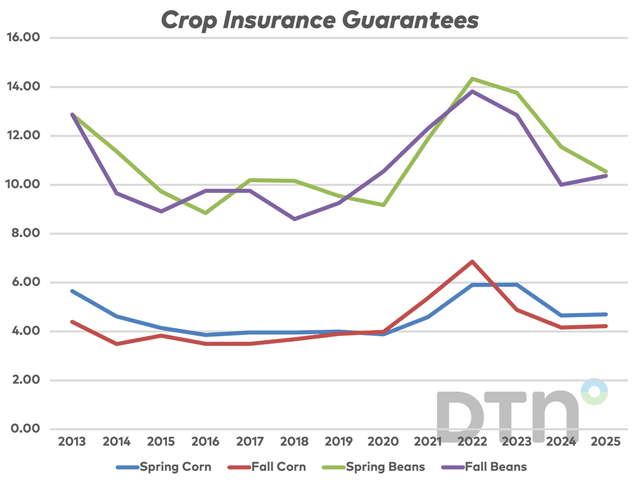Kub's Den
Hunger Breeds Madness
On Nov. 11, 1918, U.S. President Woodrow Wilson stood in front of Congress to announce the armistice agreement that ended World War I. On that triumphant day, he also included some sobering ideas for America's policy going forward -- it should provide food in Russia, Holland, Switzerland, and yes, even Germany, to prevent massive starvation and widespread rioting.
"Hunger does not breed reform; it breeds madness and all the ugly distempers that make an ordered life impossible," Wilson proclaimed. Even though many Americans were none too happy to sacrifice their own food supplies for the benefit of The Hun, it was predicted that a food shortage in Germany would foster anarchy and thwart its ability to peacefully rebuild after "the" war.
Ninety-seven years later, it seems we should turn Wilson's quote around. In the major wheat-producing countries where Islamic State terrorists have disrupted entire economies' normal business operations, now it's madness that breeds hunger.
Various warring groups in Syria have left entire cities without reliable access to food. It's risky to haul commodities by truck on the country's highways, so even where there may be available wheat, fruit, or vegetables, these goods can't be safely transported. If supplies do make it through to consumers, the freight costs are extraordinarily high. "Families were found to be spending more than half their incomes on food and in some places such as Sweida, Aleppo and Hama this share is higher and has jumped to almost 80% in Dara'a, one of the areas that have witnessed some of the most intensive fighting," according to a July assessment by the Food and Agriculture Organization of the United Nations.*
Syria's violence and madness causes hunger by an even more fundamental mechanism -- it discourages grain from ever being planted. Its agriculture has been affected by fuel shortages, labor shortages, and a lack of access to inputs. Field equipment and irrigation systems have been bombed. In some areas, it's dangerous for a farmer just to go out to check his fields, and standing crops are sometimes burned to remove cover for snipers, or simply to cause hardship to the local population. In 2015, Syria's harvested wheat area was the smallest since the 1960s.
Syria isn't the only place where grain production is lower than it could be under better circumstances. Anywhere violence threatens economic stability, banks will be unwilling to lend farmers the necessary operating capital to buy seed and apply fertilizer.
We know that wheat is the most global of all our major grain crops, capable of being grown in virtually every country on earth. Wheat producers and traders are accustomed to expect global weather developments in Canada or Australia to affect the prices received here in the United States. Chicago futures prices fell by double digits Tuesday after USDA's monthly World Agricultural Supply and Demand Estimates bumped up the European Union's wheat production (which is more competitive than dollar-denominated wheat on the global export market) by 2 million metric tons.
P[L1] D[0x0] M[300x250] OOP[F] ADUNIT[] T[]
But let's take a look at a broad swath of countries that have relatively small individual wheat production numbers, but which form a significant collective portion of global wheat production, and which are being obstructed by violence and economic disruption.
No. 8 Global Producer -- Ukraine
Despite a recent cease fire negotiated with Russian separatists, the Ukrainian government itself is presently unstable, and the prime minister may be ousted within the next month. The overall lack of ag business development in Ukraine has definitely limited its grain production. We know that the country has the capacity to grow as much as 30.3 mmt of wheat; farmers did so as recently as 1990. In 2015, however, despite the past 25 years of technological improvement, Ukraine's wheat production is still 11% off its historic high seen at 27 mmt.
No. 14 Global Producer -- Egypt
I haven't seen specific evidence that ISIS violence in Egypt is affecting ag business lending there, but I can't imagine recently having an airplane full of tourists fall out of the sky will be good for its economic stability. On Tuesday, the Foreign Agriculture Service trimmed its 2015-16 Egyptian wheat production estimate to 8.1 mmt, which is only 41% of the country's annual consumption of wheat.
No. 18 Global Producer -- Afghanistan
Just this past Sunday, seven people were kidnapped and killed by ISIS militants in the Afghan province of Zabul, where ISIS and Taliban insurgents are fighting against each other. Less than half of the land suitable for agriculture in this country is presently cultivated after decades of neglect, and Afghanistan is therefore a net importer of 2 mmt of wheat and flour products.
No. 21 Global Producer -- Iraq
Iraq was on track to announce self-sufficiency in agriculture in 2015, but then ISIS terrorists took control of some of the most productive regions in the country, and in January the Minister of Agriculture had to announce that the country lost 40% of its agricultural production capacity. The FAS now projects Iraq will import 3.2 mmt of wheat and flour products in the 2015-16 marketing year.
No. 23 Global Producer -- Syria
The FAO's Special Report* from this summer stated that Syria "faces a wheat deficit of about 800,000 tonnes out of its yearly requirement of nearly 5 million tonnes," and "the price of bread has spiraled in the past year, increasing by up to 87% in public bakeries."
These five countries together produced over 44 mmt of wheat in 2014, which was larger than the production of the entire Great Plains of the United States (from Texas up to Montana and Minnesota). To the extent that these violence-ravaged places are being prevented from reaching their full potential, this is a long-term bearish argument for the wheat markets. Don't think, "Global wheat production is reduced in 2015 by violence and dysfunction." Rather, consider: "How much larger will wheat production grow, and how quickly, once these forces no longer have influence?" Someday these conflicts will end and the regions' grain production will normalize to impressive levels.
Every veteran has in some way endeavored to create a global environment that allows people to live in peaceful abundance. On the opposite side of that fight are the radical fighters who disrupt even the most basic agricultural functions of human society. Enjoy your plentiful, relatively cheap American food supply today, and thank a veteran.
Elaine Kub is the author of "Mastering the Grain Markets: How Profits Are Really Made" and can be reached at elaine@masteringthegrainmarkets.com or on Twitter @elainekub.
* "Special Report: FAO/WFP Crop and Food Security Assessment Mission to the Syrian Arab Republic." 23 July 2015. http://www.fao.org/…
(CZ/BAS/ES)
Copyright 2015 DTN/The Progressive Farmer. All rights reserved.



